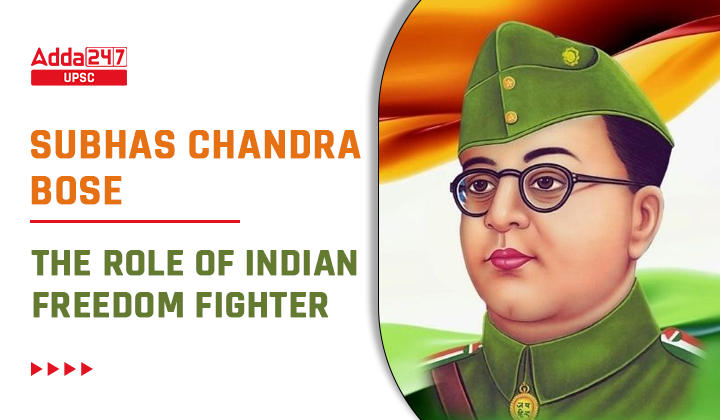Table of Contents
Subhas Chandra Bose: Subhas Chandra Bose, known as Netaji, was an influential Indian nationalist leader and freedom fighter. Born on January 23, 1897, he played a pivotal role in India’s struggle for independence from British rule. Bose formed the Forward Bloc political group and organized the Indian National Army (INA) during World War II, aiming to liberate India with the support of Axis powers.
His famous slogan, “Give me blood, and I shall give you freedom,” reflects his unwavering determination. While the circumstances surrounding his death remain debated, Bose’s legacy as a charismatic leader and his relentless pursuit of independence continue to inspire generations in India.
Biography of Netaji Subhas Chandra Bose
This article provides a comprehensive exploration of the life of Netaji Subhas Chandra Bose. Get details about Subhash Chandra Bose’s Education, Family, wife, Struggle for freedom, and How did he die.
Education of Subhash Chandra Bose
Janakinath Bose and Prabhavati Dutt had a total of 14 children, with Subhas Chandra Bose being the ninth child. He attended the Protestant European School in Cuttack and was known for his meticulous approach to studies, securing the second position in the matriculation exam. Subsequently, Bose enrolled at Presidency College (now University) in Calcutta, where he delved into the teachings and philosophies of Swami Vivekananda and Shri Ramakrishna Paramhansa Dev, displaying a keen interest in their works.
However, Bose faced false allegations leading to his expulsion from college, igniting a strong sense of rebellion within him. Witnessing the widespread mistreatment of Indians by the British in Calcutta further fueled his determination. He then enrolled at Scottish Church College, affiliated with the University of Calcutta, and obtained his graduation degree in Philosophy in 1918. With aspirations of joining the Indian Civil Services, Bose traveled to London with his brother Satish. Utilizing his profound knowledge, he successfully cleared the exam on his first attempt.
Despite his achievement, Bose harbored discontent as he would have to serve under the British government. However, the infamous Jallianwala Bagh massacre solidified his resolve to no longer serve the British. In 1921, Bose made the decision to resign from the Indian Civil Services, expressing his anger and resistance towards the British government.
Family of Subhash Chandra Bose
Hailing from a prosperous family, Subhash Chandra Bose was born to Janaki Nath Bose and Prabhavati Devi. Among his siblings, Bose had 13 brothers and sisters, with 6 sisters and 7 brothers in total.
Wife of Subhash Chandra Bose
Subhash Chandra Bose maintained a private personal life and was married to Emilie Schenkel. Though little is known about her, Bose rarely discussed his family in public. He had a daughter named Anita Bose, but his commitment to the country left him with limited time and attention for his family. Bose’s unwavering dedication to his goal of liberating the nation led him to prioritize the nation above all else, devoting his entire life to the cause of independence.
Subhash Chandra Bose Biography: Struggle for Freedom
Subhash Chandra Bose initially held great admiration for Gandhi, which led him to join the Indian National Congress (INC). He even established his own newspaper, called “Swaraj,” to advocate for the concept of self-governance. Under the guidance of Chittaranjan Das, Bose embarked on his political journey. He became the President of the All India Youth Congress and took on the role of editor for the newspaper “Forward,” initiated by C.R. Das in 1923. Bose’s exceptional leadership skills propelled him to become the mayor of Calcutta, solidifying his significance within the INC. In 1928, while the Motilal Nehru Committee called for Dominion Status, Bose aligned himself with Jawaharlal Nehru and demanded complete independence from British rule. This divergence of ideology caused Gandhi to disagree with Bose, as the latter did not advocate for non-violence, which Gandhi sensed in Bose’s methods.
Death of Subhash Chandra Bose
The death of Subhash Chandra Bose remains a topic of debate and controversy. According to the officially accepted account, Bose died on August 18, 1945, in a plane crash in Taipei, Taiwan (then Formosa), shortly after the end of World War II. The aircraft, reportedly carrying Bose, crashed while taking off from an airfield, resulting in fatal injuries. However, there are various theories and claims suggesting alternative explanations for his death. Some believe that Bose did not die in the plane crash and instead lived in secrecy under a different identity.
Over the years, several investigations and inquiries have taken place to uncover the truth surrounding his demise, but conclusive evidence has remained elusive. The circumstances surrounding Subhash Chandra Bose’s death continue to be the subject of speculation, and his legacy as a prominent freedom fighter and nationalist leader persists.
| Follow US |
|
| UPSC Govt. Jobs UPSC Current Affairs UPSC Judiciary PCS Download Adda 247 App here to get the latest updates |



 TSPSC Group 1 Question Paper 2024, Downl...
TSPSC Group 1 Question Paper 2024, Downl...
 TSPSC Group 1 Answer key 2024 Out, Downl...
TSPSC Group 1 Answer key 2024 Out, Downl...
 UPSC Prelims 2024 Question Paper, Downlo...
UPSC Prelims 2024 Question Paper, Downlo...







